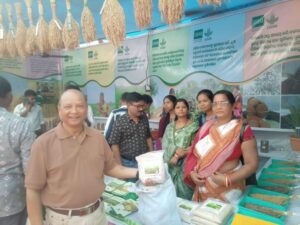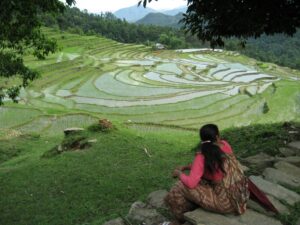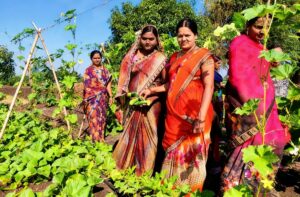
A celebration unfolded with a pageantry of traditional drums, songs, and dances in Accra, Ghana, in November 2012. The reason for the festivity was rice as the country celebrated its First National Rice Festival. It showcased a wide range of high-quality local rice as well as traditional and innovative rice dishes prepared at the event by the best chefs in Accra.
Reflecting the growing importance of the rice sector in Ghana, the Ghana Rice Inter-Professional Body (GRIB) organized this first-ever National Rice Festival with the theme “Growing a vibrant rice industry through public-private partnership for food security.” This coincided with the 8th General Assembly of GRIB, an association of rice farmers, millers, processors, agrochemical input dealers, and traders. GRIB now has about 10,000 members.
The Rice Festival aims to bolster support for the local rice industry through public-private partnership and highlights the importance of the rice sector in increasing food security, reducing poverty, and creating employment in the country.
The event emphasized the need to shift urban consumers’ preference from imported rice to quality Ghanaian rice to increase the market incentives for local rice producers and processors. It included training programs to strengthen their capacity for managing rice farming as a profitable business.
Rice has become an important staple in Ghana, particularly in cities and towns. The country’s consumption continues to increase with the country’s population growth, urbanization, and changing consumer preferences. However, the country’s rice self-sufficiency ratio is only about 30%, leaving a 70% shortfall. Currently, Ghana spends about US $450 million every year on rice imports to meet its local demand.
Urban consumers prefer imported rice over locally produced rice. Because of poor postharvest handling, Ghana’s rice is generally perceived to be of inferior quality.
But, GRIB and its partners have been striving to increase local rice production and quality. “The quality of local rice is as good as that of imported rice—in fact, even better, as the local rice is fresh and without pesticides,” said John K. Imoro Amoro, GRIB president. “GRIB is stepping up its efforts to institute quality control mechanisms for local John K. Imoro Amoro, president of the Ghana Rice Inter-Professional Body (GRIB), speaks at the inauguration of the First National Rice Festival in Accra, Ghana. Women have a strong role in Ghana’s rice production. rice in order to meet international standards.”
Mr. Imoro Amoro highlighted the challenges faced by the Ghanaian rice industry in the areas of technology transfer, credit, and seed system. “Research is crucial as we need updated information on improved seed, good agronomic practices, and appropriate technologies,” he said.

He cited an example of improved parboiler technology developed by the Food Research Institute, Council for Scientific and Industrial Research in Ghana, which was successfully imparted to women parboiler groups through GRIB.
The Rice Festival brought together representatives of rice stakeholders, including farmers, millers, processors, traders, development agencies, national and international research organizations, and donors. It was inaugurated by Mr. Lemuel Kwashie Martey of Mannah Farms Limited, who was named as Ghana’s best farmer in 2012.
__________________________________________
Ms. Mohapatra is the head of Marketing and Communications at Africa Rice Center.










